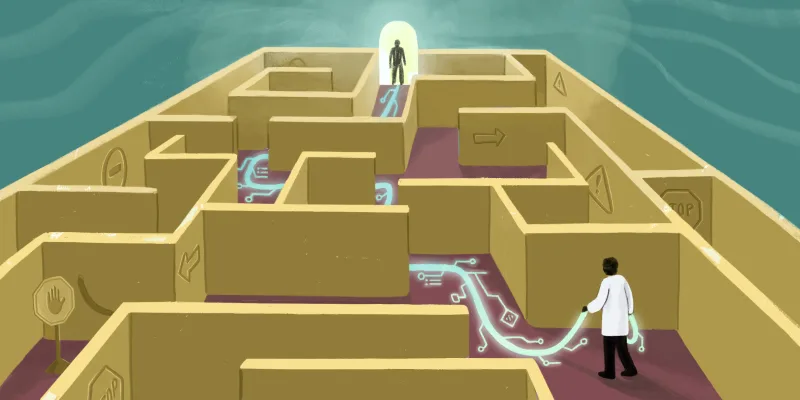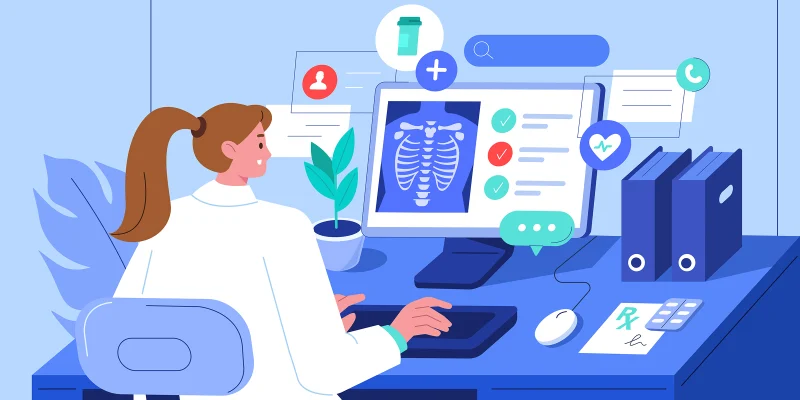“I stopped hanging out with physicians because all they talk about is work!”
If I had a penny for every time I’ve heard someone say this in the last few years, I’d be far richer than what my meager academic pediatric endocrinology salary allows. In a recent essay I read, the author described how they were chastised for discussing fellowship applications in a hot tub by an irate physician who felt they were stressed enough at work to not want to hear about it on their off hours. I get that. It is normal to want a break from it all. “Learn to disconnect” is the wellness mantra and we should all be chanting it. I guess I shouldn’t call and burden my work-bestie, then. But my artsy footwear-designer best friend would surely not understand why I grumble about skipping lunch to keep up with the clinic flow, bewail all the “scut-work,” and yet am still very much in love with my profession.
When I talk about work-life balance at work, my “millennial notions” are playfully shot down. “Your generation just knows how to complain. We used to stay at work and do everything ourselves. We wrote notes after clinic hours, came to the hospital on weekends to see our patients, and got research done on our vacation. It was part of the job, and we did it without as much as a whimper.”
Have the times really changed that much? Were physicians always expected to make an unrealistic number of RVUs, excel academically, and ace patient satisfaction surveys while clinic schedules get overbooked, authorizations from insurance get more difficult, and internal funding for academic endeavors is essentially out of question? Maybe the pandemic is to blame for the precipitous burnout and “quiet-quitting” of physicians. Maybe it is just a generational issue. Maybe I need to cultivate a more positive outlook. Or maybe there is more to it.
So, here are the rules thus far: Don’t make a fuss about work outside work, and don’t gripe about work at work. The complaint box is closed to physicians. “We signed up for it.” Instead, I turn on the TV to numb my brain, only to see characters like Meredith Grey and Gregory House spending their lives at the hospital, devoted to their one true passion: patient care. No respite for my whiny heart!
The health care industry has long been perceived as a noble profession where altruistic individuals work tirelessly to care for their patients and for advancement of their field, regardless of personal cost. While this perception has some merit, it also contributes to a culture where physicians are expected to put their profession above everything else, even their own well-being. As a result, physicians are often hesitant to talk to non-medicos about their work struggles, fearing that it may affect how they are perceived, and how their “negativity” may reflect on the profession as a whole. On the other hand, other physicians who are supposed to “get it” are too busy drowning in their own workloads to spend any additional time in “futile” conversations. However, this culture of silence is not only harmful to the individual physician, but to the profession as a whole. While nurses and other health professionals do an excellent job of standing up for their rights, duty-hours, and pay (even though there is room for improvement everywhere), physicians are often looked down upon for speaking up too loudly for themselves. The issue of physician burnout is not an individual problem, but a systemic one. It is only by addressing the root causes of physician burnout that we can hope to create a sustainable health care system that benefits everyone. However, in order to do so, we must first break down the culture of silence that surrounds the profession.
Don’t get me wrong. There is nothing wrong with wanting to disconnect the moment we step out of the health care institutional walls. In fact, it is healthy to have a full life outside of work and most of us do.
I paint, travel, and foster dogs. My husband, also a physician, enjoys running marathons and is an amateur photographer. Our family comes first. Even without elaborately defined hobbies and interests, there are various aspects of our personalities that are not defined by what we do at our jobs. And I love finding out these little tidbits about colleagues. By acknowledging and celebrating these other aspects of their lives, we can create a more well-rounded and fulfilled community of physicians. I love my conversations with friends in and outside of medicine because of how much I learn, and the interesting insights I gain.
And yet, I don’t shy away from talking about work. I propose that we should talk more about our jobs, and the issues that we face in medicine. Not instead of, but in addition to the many other cool and fun things on our minds. Because if we don’t talk, we will not learn from one another, and we won’t come up with solutions. If we don’t share what we are going through with people who understand, we will be left feeling lonely and inadequate.
So, dear physicians, let’s hang out with each other and spend some quality whiny time. Let’s open and encourage conversations. Let’s use workplace banter to find the joy and amusement in the nuances of our profession. Let’s make our shoulders available when our colleagues and friends need a good cry. Let’s hear each other out and support one another through the good times and the bad. Because if we don’t, then who will?
What are your grievances about medicine? Air them in the comment section and share solutions to others' issues.
Dr. Priyanka Bakhtiani is a pediatric endocrinologist at the Children’s Hospital Los Angeles, CA, specializing in the endocrine care of children after cancer therapy. She manages social media and networking for the Southern California Organization of Pediatric Endocrinology and the Pediatric Endocrine Society. She is passionate about medical education and currently pursuing a Masters in Academic Medicine. She loves to go hiking with her husband and foster dogs. Dr. Bakhtiani is a 2022–2023 Doximity Op-Med Fellow.
Image by Vladimir Kononok / Getty Images







